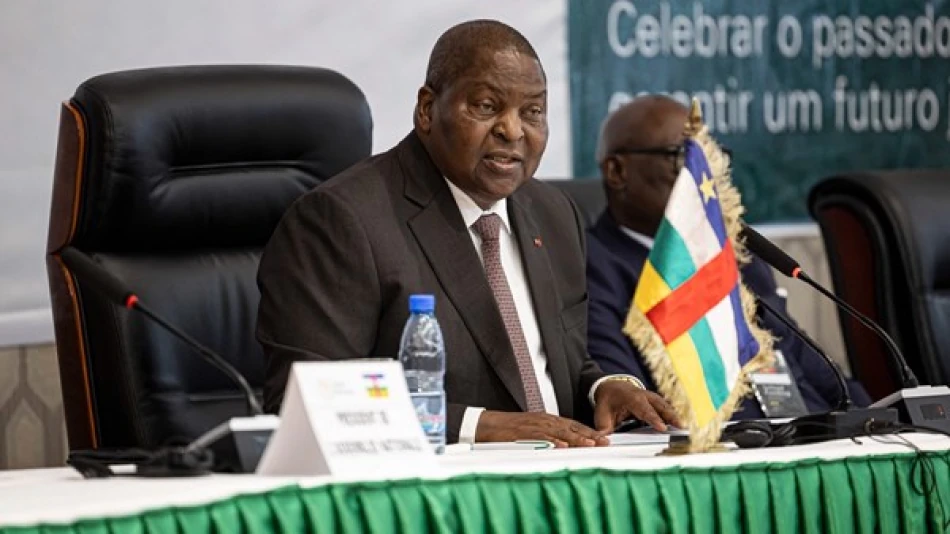
Central African Republic President Seeks Unprecedented Third Term Amid Political Tensions
Central African Republic's President Seeks Third Term After Constitutional Overhaul
President Faustin-Archange Touadéra of the Central African Republic announced his candidacy for a third presidential term, capitalizing on a 2023 constitutional referendum that eliminated term limits and extended presidential mandates from five to seven years. The 68-year-old leader's decision reflects a broader trend across Africa where incumbent presidents are reshaping constitutional frameworks to extend their grip on power.
Breaking Constitutional Precedent
Speaking to members of his United Hearts Movement party in the capital Bangui on Saturday, Touadéra confirmed what many had anticipated since the constitutional changes took effect. "Many of you have asked me, and my answer is yes. I am your candidate for the presidential elections in December 2025," he declared, promising to "continue working on rebuilding our country."
The constitutional referendum in 2023 marked a pivotal moment for the resource-rich nation of 5.5 million people. By removing the two-term limit that should have ended Touadéra's political career, the changes fundamentally altered the country's democratic trajectory and aligned it with similar moves across the continent.
A Pattern Across Africa
Touadéra's constitutional maneuvering follows a well-established playbook used by African leaders seeking to extend their rule. Similar strategies have been employed in countries like Guinea, where Alpha Condé successfully changed the constitution in 2020 before being ousted in a military coup, and in Ivory Coast, where Alassane Ouattara secured a controversial third term the same year.
This trend reflects a concerning democratic backslide across the continent, where constitutional manipulation has become a preferred alternative to the military coups that characterized earlier decades of African politics.
Governing Through Crisis
Touadéra's presidency, which began in 2016 amid civil conflict, has been defined by ongoing security challenges. His second-term victory in 2020 was immediately contested by armed opposition groups, including the Coalition of Patriots for Change, which attempted to overturn the results through force.
The government has relied heavily on UN peacekeeping forces and foreign military support to combat these rebel coalitions, highlighting the fragile nature of state authority despite the country's abundant natural resources, including gold, diamonds, and timber.
Economic Implications
For international investors and development partners, Touadéra's extended tenure presents a double-edged scenario. While political continuity could provide stability for long-term investments in the country's mining and forestry sectors, the erosion of democratic norms may complicate relationships with Western donors and multilateral institutions increasingly focused on governance conditions.
The seven-year presidential term extension also means that any policy shifts or economic reforms will have longer implementation periods, potentially affecting international engagement strategies and investment timelines.
Regional Security Concerns
The Central African Republic's continued instability has broader implications for regional security in Central Africa. The country's ongoing conflicts have created refugee flows to neighboring countries and provided opportunities for transnational criminal networks to exploit weak governance structures.
Touadéra's bid for extended rule comes at a time when the region faces multiple security challenges, from jihadist insurgencies in the Sahel to political transitions in countries like Chad and Gabon. His ability to maintain power while addressing these internal conflicts will likely influence regional stability dynamics through the remainder of the decade.
Most Viewed News

 Layla Al Mansoori
Layla Al Mansoori






